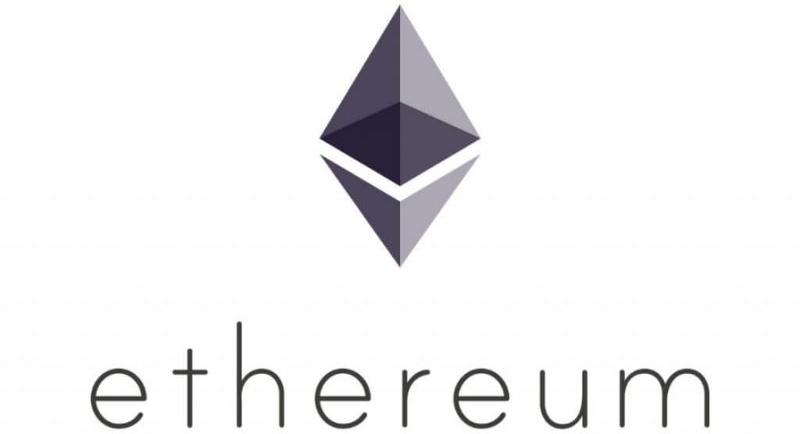Ethereum vs Cardano, two similar cryptos with massive market shares. The two cryptocurrencies, whose developers were once partners, use similar technology and have almost identical goals. Ethereum and Cardano, both of which support smart contracts, are the second and fourth-ranked cryptos respectively by market cap. But which is best?
In this article, we will explore the pros and cons of Ethereum vs Cardano over several criteria, including energy consumption, fees, prices, security, supply and long-term future. By making a direct comparison between Ethereum and Cardano, we hope to shed some light on whether Ethereum vs Cardano is a better investment. We have also compiled a list of the top brokers supporting trading in both coins below.
What Is Ethereum?
Ethereum has grown to become a major player in the cryptocurrency world, with a market cap second only to Bitcoin. However, unlike Bitcoin, Ethereum was created to facilitate a piece of transaction technology known as a ‘smart contract’, which Cardano has also begun to implement. Smart contracts allow users to transfer money to one another without the need for a third party (such as a bank or broker). Such transactions lower costs and increase security for the user.
Famously, Ethereum also enables the storage and trade of non-fungible tokens (NFTs), pieces of unique digital property often linked to works of art and other high-profile items.
Both Ethereum vs Cardano use decentralised blockchain networks. In such a system, all Ethereum users participate as interacting nodes. Every transaction performed on the network is stored in blocks on the blockchain, which acts as a digital ledger of all previous interactions. To ensure that every node holds the same copy of the blockchain, ‘miners’ are used to verify transactions. 
Miners are rewarded financially with the Ethereum native currency, Ether (ETH). To pay the miners, a charge called a gas fee is levied on each Ethereum transaction. This is known as a proof-of-work consensus method. Importantly, thanks to their decentralised blockchain networks, platforms like Ethereum and Cardano can support decentralised applications (DApps) like smart contracts. Proponents of currencies like Ethereum and Cardano claim that DApps will one day form the basis of the future global economy.
Recently, Ethereum has begun to move from a proof-of-work to a proof-of-stake blockchain, known as Ethereum 2.0. This update has been designed to improve scalability, transaction speed and energy consumption.
For the sake of a fair Ethereum vs Cardano comparison, it is worth noting that Cardano was conceived specifically as a proof-of-stake blockchain platform.
What Is Cardano?
Ethereum vs Cardano share much of their cryptocurrency ‘DNA’. In fact, Cardano was founded in 2015 by one of the lead developers of Ethereum, who wanted to run the company as a for-profit entity. The native currency of the Cardano platform is ADA, named for the mathematician Ada Lovelace. Cardano’s blockchain network is currently being updated to support DApps, much like Ethereum’s. In September 2021, Cardano’s ‘Alonzo’ upgrade brought smart contracts to the network for the first time.
Considering the consensus models of Ethereum Vs Cardano, the latter was designed around the proof-of-stake system. Crypto networks that employ a proof-of-stake method have drawn considerable financial and academic interest largely because their energy consumption is much lower than blockchains that use a proof-of-work model, making the currency significantly more sustainable. Given the current demand for green technology, this could make proof-of-stake blockchains like Cardano (and eventually Ethereum 2.0) an attractive long-term investment. Cardano is currently the largest currency to use a proof-of-stake consensus model, by market cap. 
In proof-of-stake blockchains, the role of the miners is replaced by ‘validators’, who, to be activated, put forward a certain amount of money (this is known as staking).
Validators are then chosen at random to verify transactions, adding blocks to the blockchain. For performing this role, the validators are paid in the platform’s native currency (such as Cardano’s ADA), with the money for this again raised via gas-type fees.
This method has several advantages over proof-of-work blockchains. Firstly, the energy consumption is substantially reduced since the validators are selected randomly rather than competing with each other by solving energy-intensive equations. Additionally, the process of staking improves security by making attacks riskier for the perpetrators.
Proof-of-stake blockchains also have increased transaction speed and performance: it is estimated that Ethereum’s transition to Ethereum 2.0 will increase throughput from 15 to several thousand transactions per second. Finally, it is expected that proof-of-stake blockchains will have much better scaling ability, giving them enormous future potential.
Ethereum Vs Cardano Similarities
Decentralisation
Ethereum vs Cardano are both blockchains that can support decentralised applications (DApps). Cardano’s move to support DApps is currently ongoing, however, with smart contracts only arriving in a 2021 update. Supporters of decentralised finance (DeFi) argue that it may one day form the basis of the future world economy, eliminating the need for third-party transactions. DApps also make possible the creation and exchange of NFTs.
Recently, several high-value NFT sales have received significant media attention, raising the profile of Ethereum in particular.
Both Ethereum and Cardano have their own active NFT marketplaces. However, it should be noted that Cardano has significantly fewer DApps on its network compared to Ethereum.
Trading Methods
Both Ethereum and Cardano can be traded on various popular platforms such as eToro, Binance, Coinbase, and Gemini. It is advisable to compare different brokers and consider their fees, margin rates, and pairings. A flat fee rate is generally preferred over a percentage model. Additionally, many trading sites offer joining bonuses for new traders.
As two of the largest cryptocurrencies in terms of market cap, trading Ethereum and Cardano is relatively secure compared to smaller coins. However, due to the uncertain future of both currencies, placing a long-term bet on either coin carries a degree of risk. Both coins are expected to perform well for the rest of 2021 in terms of price prediction.
Security
Decentralization makes both Ethereum and Cardano less vulnerable to attack, as long as 51% of the stake is held by honest participants. In theory, both networks could be targeted by a 51% attack like the one that affected Ethereum Classic in 2019. However, the financial resources required to overcome both networks in this way would be enormous – in the order of tens of billions of USD.
Differences Between Ethereum and Cardano
Market Cap and Price
Currently, Ethereum and Cardano have significantly different market capitalizations. Ethereum is the second-largest cryptocurrency in the world with a market cap of over USD 350 billion, while Cardano occupies the fourth spot with a market cap of around USD 3 billion. ETH’s price is also generally much higher than ADA’s, with ETH at around 3,000 USD and ADA at around 2 USD.
Ethereum is the largest smart contract network and has the most NFTs and tokens. While its price rose significantly during the cryptocurrency boom, some argue that its market valuations are difficult to justify.
Ethereum’s reputation has been affected by high gas fees, scalability problems, and unsustainable energy consumption. However, the move to Ethereum 2.0 is expected to make it an exciting investment again.
Validation Model, Speed & Energy Consumption
Cardano’s validation system is different from Ethereum’s. Cardano uses a proof-of-stake model, which makes it faster and more efficient compared to Ethereum’s proof-of-work system. Cardano’s transaction speed is around 257 transactions per second (TPS), while Ethereum’s average is only around 15 TPS. Additionally, Cardano only uses 6 GWh of energy annually, while Ethereum miners consume a staggering 44.5 TWh.
Ethereum’s proof-of-work model has caused significant scaling problems, leading to congestion and slower transaction speeds. In comparison, Cardano has not experienced such issues with its performance. Ethereum’s transition to Ethereum 2.0 is expected to improve its performance in this regard.
Fees
Ethereum charges gas fees on every transaction, which can be volatile and have steadily increased over the years.
This increase has been largely caused by growing congestion and performance issues on the Ethereum network. Cardano’s fees, however, are generally much more affordable.
Supply
The total supply of ADA Cardano is fixed at 45 billion tokens. In contrast, Ethereum has a limitless supply that increases by 4.5% each year. Investors looking to buy Ethereum vs Cardano should take into account the supply of both coins, which will affect future prices. It is worth noting that Cardano is built with a declining stake reward, which prevents inflation and increases scarcity. 
Pros Of Ethereum For Traders
In the Ethereum vs Cardano debate, the main advantage of the former is its size, being a larger, more high-profile cryptocurrency. As the leading decentralised smart contract network, Ethereum supports a greater number of DApps and NFTs, which are only beginning to be supported on the Cardano platform. Consequently, Ethereum has been more widely adopted than Cardano. However, Ethereum’s popularity has led to some problems with network congestion, with adverse knock-on effects on speed and fees. Ethereum’s sheer size and importance almost certainly make it a safer long-term investment than Cardano.
Ethereum is also expected to move to a proof-of-stake verification model in 2022. This will address many of the current scaling problems the network is experiencing and should boost Ethereum’s value, as well as making it more eco-friendly.
Pros Of Cardano For Traders
For Ethereum vs Cardano, the latter already uses the proof-of-stake system for its blockchain, offering several advantages over the current version of Ethereum.
Its lower energy consumption, in particular, has meant that Cardano has attracted serious attention from investors.
Proof-of-stake makes Cardano significantly faster than Ethereum, which means it can avoid congestion problems and keep transaction fees low.
Cardano has also recently implemented smart contracts onto its network, making it a direct competitor of Ethereum for the first time.
Final Word On Ethereum Vs Cardano
When comparing Ethereum vs Cardano, the most significant differences lie in the validation models used.Ethereum’s archaic proof-of-work system may be about to be updated to proof-of-stake, but Cardano was designed specifically around this.This means that it has, throughout its time, been much more eco-friendly, as well as boasting faster transaction times, limited congestion and energy-efficient NFT marketplaces.However, Ethereum is a significantly larger cryptocurrency with a much greater public profile, also being the frontrunner in smart contracts, DApps and NFTs.
FAQs
Is Cardano Better Than Ethereum?
The Cardano network possesses a fully functioning proof-of-stake blockchain and recently introduced smart contracts.However, Ethereum is yet to upgrade to Ethereum 2.0, which will utilise the proof-of-stake validation method.
This gives Cardano advantages in terms of speed, scalability and security.
Ethereum, on the other hand, is the larger and more established platform, supports a greater number of DApps and has been more widely adopted than Cardano.
Can Ethereum And Cardano Coexist?
Although Ethereum vs Cardano have both been designed to perform very similar roles, there doesn’t seem to be any reason why the two currencies could not survive simultaneously into the future, with each coin carving out an individual niche.Moving to a proof-of-stake model will also mean that both currencies can exist together sustainably.
Is Ethereum Vs Cardano’s Energy Consumption Best?
Cardano is currently more energy-efficient than Ethereum, by a significant margin.It is expected that it will still outperform Ethereum 2.0 in this regard, making it the greener of the two cryptos.
Do Ethereum Vs Cardano Support Smart Contracts?
Both platforms have implemented smart contract technology as one of their major goals.
